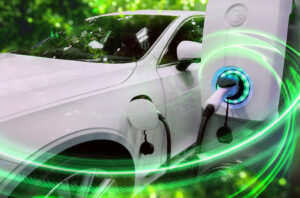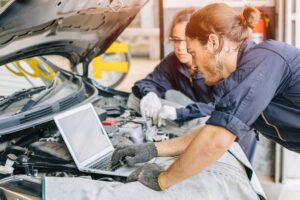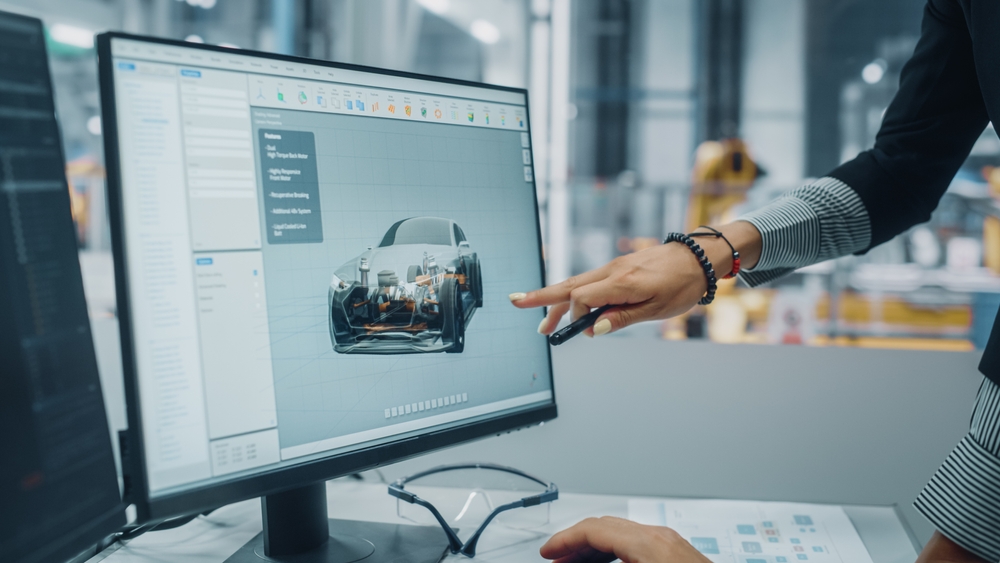MD Nik Ellis speaks to Modern Insurance Magazine about issues facing the industry for 2023.
How can advancements in the integration of technology provide smart solutions to the accident repair industry and streamline the process of a Credit Hire claim?
Integration allows collaboration, control and automation. It has become embedded in every process, from cradle to grave, and becomes better with each upgrade.
The initial instruction from a client’s FNOL team is now processed immediately. In many cases this triggers deployment of a weblink, typically sent via text or WhatsApp to our client’s client, ie the driver. This guides them through taking photos that we require; 360 degree shots of the car, multiple angles of the impact, chassis number, mileage and the number plate.
These details allow us to pull data from the DVLA and manufacturer data to ensure we know the exact details, specification and value of the vehicle. Using artificial intelligence and / or human engineers, we can triage the damage to give instant information to the client or trigger other actions.
For example, clients need to know whether the vehicle is still legally drivable. If not they can provide a hire car immediately, or alternatively leave the driver in the car. Knowledge of whether the car is a total loss or repairable enables instant decisions on where it goes; salvage agent, body-shop or smart repairer. Our software can instruct them directly, saving the client time whilst providing a great customer experience for the driver.
Likewise repairer management is now controlled with automation, ensuring key information flows multi-directionally between the body-shop, hire car company, claims managers, insurer, broker; anyone who needs real time information and has ‘set plays’ for certain actions. It also allows infinite safety nets which ensure set routines are followed when things don’t go according to plan.
All of the information and actions carried out are immediately visible to the client, with data transferred directly into their own systems via API. This transparency offers both a better level of customer service whilst also serving to self-police the system.
The functions, decisions and work flows previously siloed, subject to human error and work 9-5. With integrations, APIs & automations there is an interconnected flow of intelligence happening in real time, running 24/7. The added value comes in the form of a better customer experience, quicker key-to-key times and a more efficient & thus profitable business. And don’t get me started on the infinitely customisable management information available!
 How are you embracing greener, environmentally friendly initiatives in your business to future-proof your role within the motor claims ecosystem?
How are you embracing greener, environmentally friendly initiatives in your business to future-proof your role within the motor claims ecosystem?
Sustainability, together with staff and technology, is a key pillar for Laird. Since 2015 we’ve operated a paperless office and have been at the forefront of pushing desktop engineering, not simply because of the advantages in speed & cost but it significantly reduces our carbon footprint. We estimate that despite growing about 20% in terms of instructions since 2018, we have reduced our carbon footprint to less than 18%, by switching to desktops.
We are massive advocates of green parts, recycling parts reduces costs and often solves OEM back order issues and clearly reduces the industry’s carbon footprint by reusing raw materials and negating parts being shipped around the world. We encourage clients to use green parts and have an integration to allow price & availability to be compared to the OEM parts.
Being eco-friendly is hugely important to us, but we’re not experts – please let us know what else we can do.
 What more can be done to address the skills shortage and make the accident repair industry more accessible for new talent?
What more can be done to address the skills shortage and make the accident repair industry more accessible for new talent?
Two questions in one here. The skills shortage has presented an opportunity for automation and artificial intelligence platforms to replace traditional roles, particularly in the office, for a faster 24/7 robot workforce, bypassing the skills shortage issue. Probably not what budding talent wants to hear!
With regards to making it more accessible or more attractive we need to make the (arguably) main motivator for going to work, ie the salary, more attractive. With labour rates artificially repressed & typically half that of their workshop counter-parts, bodyshops have struggled to attract top talent. I recall many panel beaters moving to Airbus, getting a good 50% extra salary for welding wings instead of cars. Being able to offer better salaries would certainly be a big step forwards.
The body repair industry needs better representation, often overlooked by institutes as the unwanted cousin of new & used sales, servicing & mechanical repairs. There are a few siloed voices but little unity when it comes to defending, let alone supporting, the industry.

